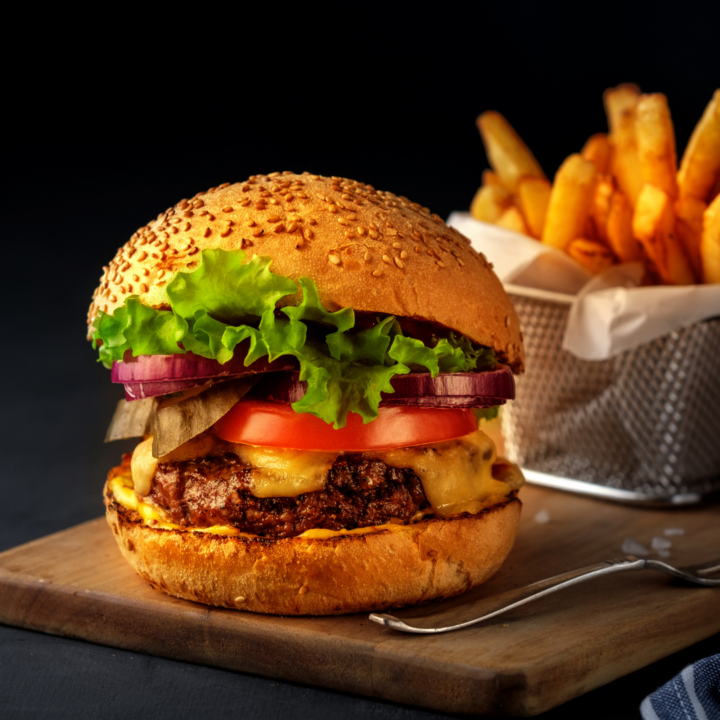Ultra-processed foods
 Note: Here we have a fantastic article from David Titman, a registered nutritionist (RNutr) and food scientist. David is a director of Raising Nutrition, an innovative social enterprise who educate and empower organisations to raise nutrition standards and knowledge: https://raisingnutrition.org/ . To view his recent webinar on ultra-processed foods, you can sign up for a free Nutritank membership here.
Note: Here we have a fantastic article from David Titman, a registered nutritionist (RNutr) and food scientist. David is a director of Raising Nutrition, an innovative social enterprise who educate and empower organisations to raise nutrition standards and knowledge: https://raisingnutrition.org/ . To view his recent webinar on ultra-processed foods, you can sign up for a free Nutritank membership here.
The term “ultra-processed foods” refers to a group of foods defined by the NOVA food classification system, as established by nutrition researchers at the University of São Paulo, Brazil. The NOVA system categorises food into 4 categories:
- Unprocessed or minimally processed foods
- Processed culinary ingredients
- Processed foods
- Ultra processed food and drink products
Although the definition of “ultra-processed foods is quite loose, it generally relates to foods that are industrially manufactured, contain ingredients that are not normally found in domestic kitchens, and contain little or no “whole” foods. Since the introduction of NOVA categories in 2009, an increasing body of research has linked high consumption of ultra processed foods with a range of chronic inflammatory diseases including metabolic syndrome, IBD, and various cancers (Srour et. al., 2022). Recent evidence has also linked high consumption of ultra-processed foods with negative mental health outcomes (Lane et. al., 2022).
The category of ultra-processed foods contains a wide variety of products including ice-cream, fizzy drinks, mass-produced baked goods, breakfast cereals and ready meals. As such, it is hard to pin down specifically what it is about ultra-processed foods that is responsible for their impact on health. However, typically, ultra-processed foods tend to be low in fibre, micronutrients and antioxidant phytonutrients. Conversely, ultra-processed foods tend to be higher in salt and sugar than less processed foods. They are also characterised by their inclusion of commercial additives, some of which have been linked to adverse health conditions and changes in the gut microbiome (Zhou et. al., 2023).
There is significant evidence linking high consumption of ultra-processed foods with obesity, although the mechanisms for this are complex (Valicente et. al., 2023). Ultra-processed foods are widely characterised by their hyper palatability, and are typically calorie dense. Additionally, they are generally less satiating than whole foods, which makes them easy to overconsume.
Although there is increasing awareness of the dangers of overconsuming ultra-processed foods, research from the retail analysis group IGD (IGD, 2023) has indicated that the general public tend to significantly underestimate the quantity of ultra-processed foods they consume. The public perception of ultra-processed foods tends to be limited to only the most highly processed products such as instant noodles and fizzy drinks. Many foods such as ready-made pizzas and breakfast cereals are not perceived by the public to be ultra-processed which puts the public perspective at odds with the scientific research.
In summary, diets based on whole foods are consistently associated with better physical and mental health outcomes compared to diets with a high proportion of ultra-processed foods. Importantly, the classification of ultra processed foods used in the research is not just related to the most highly processed foods, but foods that are commonly perceived as merely “processed” or “processed culinary ingredients”. Be aware of how much ultra-processed food you are eating and the impact it may have on your health.
“David Titman is a registered nutritionist (RNutr) and food scientist with multinational experience in advising the food sector. He takes creative, pragmatic approaches to working with companies in developing their responsible food strategies, which has led to significant positive change in charitable, commercial and educational settings. He is the director of Raising Nutrition, an innovative social enterprise who educate and empower organisations to raise nutrition standards and knowledge: https://raisingnutrition.org/ . To view his recent webinar on ultra-processed foods, you can sign up for a free Nutritank membership here.”
References
IGD, 2023. Ultra-processed foods: a consumer perspective Available at Ultra processed foods: a consumer perspective (igd.com)
[Accessed 24/08/2023]
Lane, M.M., Gamage, E., Travica, N., Dissanayaka, T., Ashtree, D.N., Gauci, S., Lotfaliany, M., O’neil, A., Jacka, F.N. and Marx, W., 2022. Ultra-processed food consumption and mental health: A systematic review and meta-analysis of observational studies. Nutrients, 14(13), p.2568.
Srour, B., Kordahi, M.C., Bonazzi, E., Deschasaux-Tanguy, M., Touvier, M. and Chassaing, B., 2022. Ultra-processed foods and human health: from epidemiological evidence to mechanistic insights. The Lancet Gastroenterology & Hepatology.
Valicente, V.M., Peng, C.H., Pacheco, K.N., Lin, L., Kielb, E.I., Dawoodani, E., Abdollahi, A. and Mattes, R.D., 2023. Ultra-Processed Foods and Obesity Risk: A Critical Review of Reported Mechanisms. Advances in Nutrition.
Zhou, X., Qiao, K., Wu, H. and Zhang, Y., 2023. The Impact of Food Additives on the Abundance and Composition of Gut Microbiota. Molecules, 28(2), p.631.
